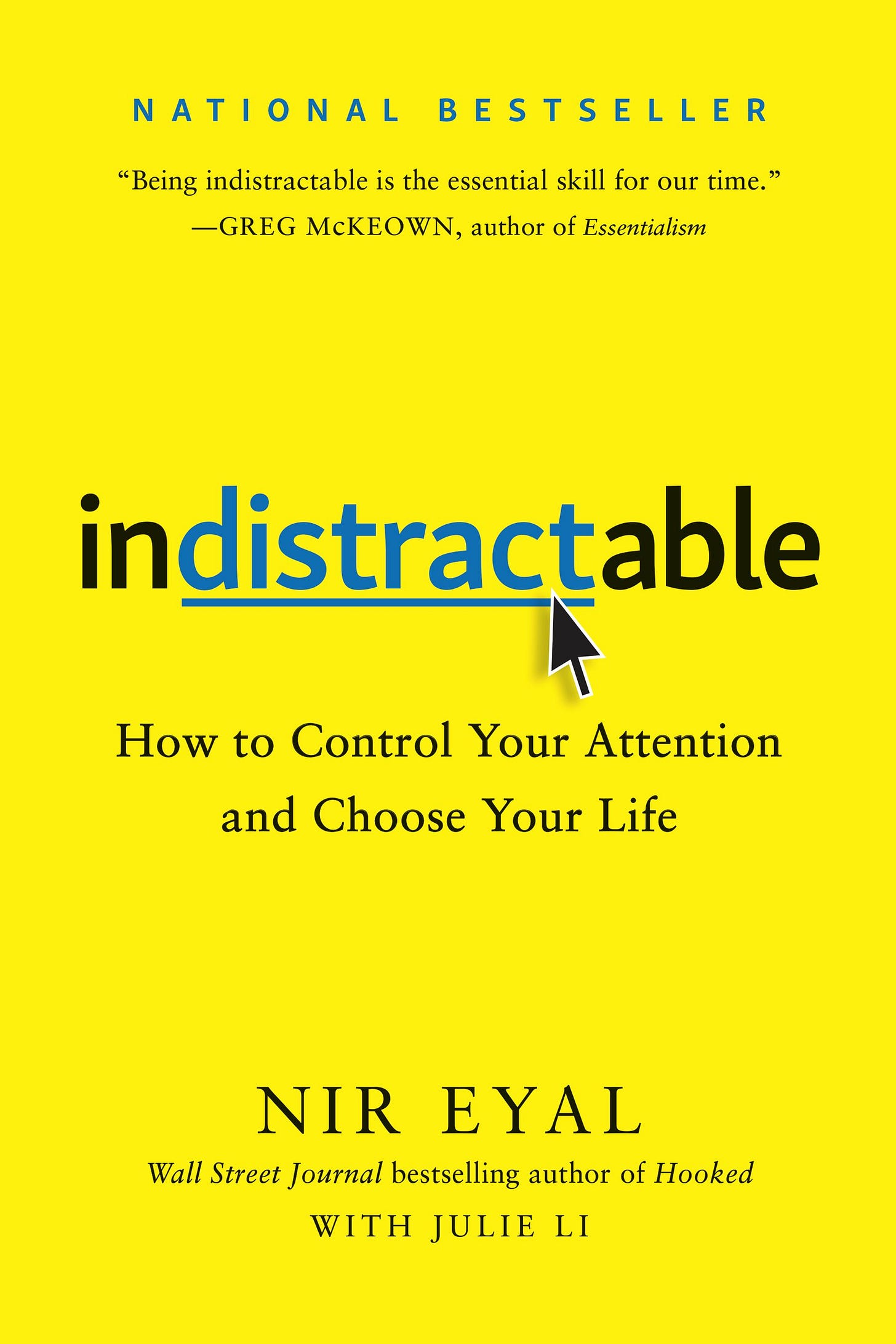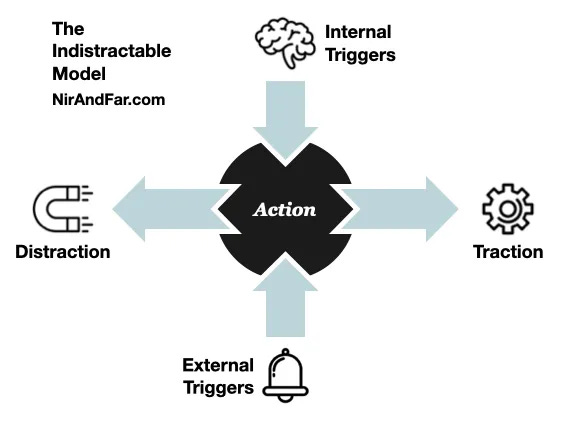Book Review: Indistractable
Review the book Indistractable. Good tweet-length reviews earn $10, longer reviews earn $100.
Note: This post was originally created at 1729.com which has evolved into thenetworkstate.com.
These days, we can do things in a second that would have taken past generations weeks, if not longer.
We can print or make almost anything we can imagine on demand. We can summon hard-to-find items to our door with a few taps. We can reach millions with a click without having to ask for permission.
But somehow it doesn't feel like we're 1000X more productive than we used to be.
Have distractions eaten up our productivity? What could you be capable of if you simply followed through on everything you intended to do with your time and attention?
These days, it's common to hear the notion that technology companies are "hijacking our brains."
Films like The Social Dilemma posit that we're hapless voodoo dolls controlled by nefarious algorithms.
An Atlantic article called Facebook's a "doomsday machine," arguing that its "hyper-targeting of users" creates a "perfect environment for manipulation."
The Wall Street Journal lays out the whole case in a single headline: "Social-Media Algorithms Rule How We See the World. Good Luck Trying to Stop Them."
An April 2021 US Senate hearing on Social Media Algorithms investigated how, in the words of Senator Dick Durbin, "social media platforms use highly targeted algorithms to captivate and persuade us in every aspect of our life."
We could go on, but you get the picture and you've heard all this before. For the sake of argument, let's say we provisionally grant that this that there's some truth to this bleak picture — so what do we do about it?
Movies, documentaries, and punditry that's critical of "the algorithm" typically offer no solutions other than waiting for the government to regulate the problem away. That means the blunt force instrument of making something either mandatory or forbidden, which is a far cry from the many micro-incentives that got us into this situation in the first place.
It'd be much better if people could develop decentralized solutions for self-protection against distractions. If we turned the power of distributed micro-incentives against the centrally managed micro-incentives offered by social media, perhaps we could even become – drum roll – indistractable.
Nir Eyal's bestselling book, Indistractable, tackles the problem of modern distraction by empowering us to break the bad habits at the root of the issue. He delves into the deeper psychology causing us to go off track, an ancient problem even Plato lamented. Eyal does this without the usual techno moral panic, writing, "We can get the best out of technology without letting it get the best of us."
Eyal's Indistractable Model synthesizes decades of peer-reviewed studies into a practical tool anyone can use.
A summary of Nir's book is here and you can listen to Nir on The Knowledge Project podcast here.
✅ Task: Earn $10 to $100 in BTC
Submit a review of Indistractable, focusing on a particular distraction you struggle with
Your challenge is simple: read Indistractable and write a review, ideally (a) focusing on a particular distraction you'd like to overcome and (b) using one or more of the techniques from the book.
The distraction can be online or offline – anything that pulls you away from what you intend to do with your time and attention.
The best short tweet-length reviews will get $10 and the best of the longer blog post reviews will get $100.
Our goal is to see what kinds of distractions people would most like to overcome and how individuals empower themselves with the Indistractable Model.
IMPORTANT NOTE: Amazon reviews will NOT be considered for this task. Only blog posts (on any publicly viewable platform), Twitter posts/threads, Facebook posts, LinkedIn articles, or other long-form formats on social media sites are eligible.
🏆 Winners: Best Book Reviews
Several submissions received $10-$100 in BTC for their reviews of Indistractable. Check out the top tweet below.








